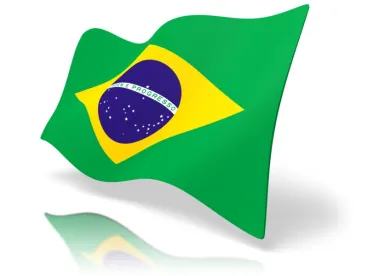This is Part 6 of an 8-part series examining post-grant review proceedings, oppositions, and third party observations in the U.S., BRIC and several non-BRIC countries. To see Part 1, Post-Grant Oppositions in Japan, click here. To see Part 2, Third Party Submissions in Russia, click here. To see Part 3, Pre- and Post-Grant Oppositions in India, click here; To see Part 4, Third Party Submissions in the U.S., click here; To see Part 5, Third Party Observations in Europe, click here.
Pre-Grant Submissions
Article 31 of the Brazilian Patent Statute (Statute #9,279/96) allows a third party to file a petition containing arguments and other documents relating to the patentability of an invention. Any such submission may contain information and arguments relating to novelty, obviousness, clarity, sufficiency, industrial applicability, added subject matter and subject matter excluded from patentability.
A pre-grant submission must be filed during the pendency of an application (namely, between the publication of the application and the termination of examination). The petition must be filed in Portuguese and must include a statement of the grounds upon which it is based. Specifically, the petition should highlight any information provided as evidence (such as any documents that raise issues of novelty or obviousness). The Brazilian Patent Office does not charge any fees for the filing of a pre-grant submission.
Documentary evidence, such as patents, published applications and non-patent literature or evidence of prior use (such as affidavits, drawings, brochures) submitted in support of the arguments, may be filed in any language (the Brazilian Patent Office (INPI) may require a translation into Portuguese within a specified time period). The petition may be filed by paper or electronically but cannot be filed anonymously (such as by using a “straw man”).
Because INPI will not inform the Applicant about the filing of a pre-grant submission, it is advisable that an Applicant routinely monitor its applications on INPI’s website for such submissions in the event the Applicant wishes to file a reply (although the filing of a reply is not mandatory). Additionally, there is no specified period during which an Applicant must file a reply.
The Brazilian Patent Office must analyze any pre-grant petition submitted during examination. However, an Examiner is not obligated to rely on any of the documents and/or arguments presented in the submission.
Additionally, according to INPI’s Normative Instruction #30/2013, any documents submitted by an interested third party through a pre-grant review petition will be considered to be a prior art document identified during a search carried out by the Examiner. In the event any such documents are deemed relevant in the assessment of patentability, these documents will be attached to an examination report.
Post-Grant Review Proceedings
Post-grant review proceedings are regulated by Articles 50 to 55 of the Brazilian Patent Statute (Statute #9,279/96). Article 51 of the Statute provides that once a patent has granted, any third party having a legitimate interest, or INPI itself, has a period of six months to file a post-grant review petition. The Brazilian Patent Office charges a fee for filing a post-grant review petition. The fee is approximately US$ 300.00 if the petition is filed electronically and approximately US$ 500.00 if the petition is filed non-electronically (such as by paper or fax).
As with a pre-grant submission, a post-grant review petition must be filed in Portuguese and must include a statement of the grounds upon which it is based. The petition should also discuss any information provided as evidence (such as any documents that raise issues of novelty or obviousness).
When a post-grant review is requested, INPI publishes a notification in the Brazilian Industrial Property Gazette. This publication triggers a 60-day period for the Patentee to submit a response to the post-grant review petition. In its reply, the Patentee is allowed to submit counter arguments, affidavits, test results and, if necessary, amend the claims.
After receipt of the Patentee’s reply, INPI analyzes the arguments submitted and publishes a preliminary opinion regarding whether or not the post-grant review petition is accepted. The Patentee and third party petitioner have 60 days to file comments to the preliminary opinion. Each party can submit counter arguments, affidavits, test results, etc.
Additionally, this is the last opportunity for the Patentee to make any claim amendments. Although there is no oral proceeding, the parties can request a meeting with INPI. Interestingly, INPI has changed its conclusions in the preliminary opinion in only five percent of the cases.
A post-grant review is finally decided by the Director of INPI. The decision is not appealable and can only be challenged before Federal Courts.
The entire proceeding, from the publication of the notification of a post-grant review request in the Brazilian Industrial Property Gazette to the publication of the decision of the Director of INPI takes approximately one year.
Currently, a total of only 562 post-grant reviews have been requested. Approximately 30 post-grant reviews are requested each year. As shown below, in the majority of the post-grant review requests, INPI decides for the Patentee and maintains the patent.
Typically, Brazilian companies are responsible for filing the majority of the post-grant review petitions. In the pharmaceutical sector, for example, Brazilian Gx companies Libbs Ltd. and Eurofarma S.A are the most active in challenging patents through post-grant review proceedings.
Regarding the technology fields receiving post-grant review petitions, the majority of petitions are filed against patents directed to agricultural technologies. Other affected fields are the electrical and telecommunication, mechanical and chemical.





 />i
/>i

